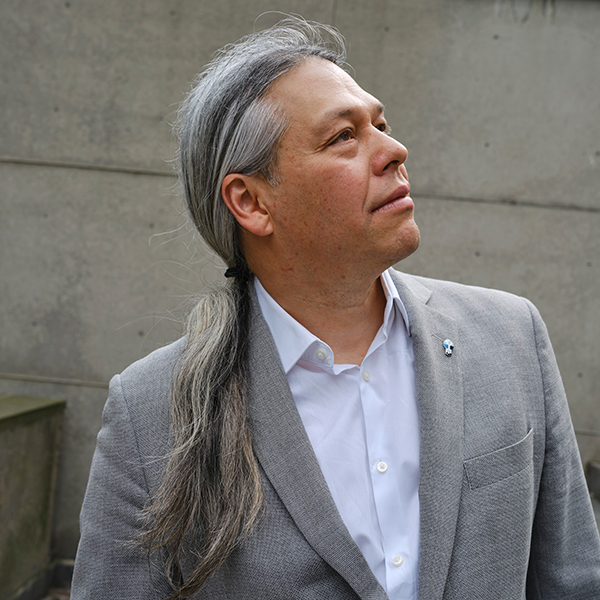It was a one-two punch that has influenced the way Canadians have seen their prime ministers ever since.
Almost 20 years ago, public administration scholar Donald Savoie published Governing from the Centre, a book that persuasively argued that “[Canadian] prime ministers … had gradually but systematically strengthened their position at the expense of everyone else.” Former Globe and Mail political columnist Jeffrey Simpson followed that up a year later with the similarly themed (and tellingly titled) The Friendly Dictatorship.
Since then, it’s become a widely accepted truism that our prime ministers face few constraints on their power and that Parliament has little purpose but to rubber-stamp the PM’s decisions.
“I took that to be the gospel truth when I moved to Ottawa,” says Ian Brodie, BA’90. “I had no reason to think differently.”
In the early days of Stephen Harper’s Conservative government, Brodie had a unique vantage point. He had been a political scientist with a long-standing interest in how the Canadian government functions. Then, as Prime Minister Harper’s first chief of staff, Brodie got to see it all up close.
His new book At the Centre of Government is informed by his experiences on Parliament Hill. It is, in large part, a rebuttal to the notion that prime ministers – and their top aides – wield almost dictatorial influence in our system.
“We’ve had generations of students come through with this idea that Parliament is a farce, that all decisions are made in the Prime Minister’s Office and that you don’t have to pay attention to anything else,” says Brodie, now an associate professor of political science at the University of Calgary. “As an academic, I find that lacking. And as a guy who worked there, I find it doesn’t really represent my experience at all.”
Thanks to a series of parliamentary reforms, “there has been this renaissance of private members’ business,” says Brodie. “The growth in the amount of private members’ [bills] that MPs propose and that get passed – I think we missed that as political scientists. I think the whole country kind of missed this.” Brodie lists some of these bills in his book, noting their impact on everything from human trafficking to bulk water exports. “We have a more vibrant parliamentary process now than we’ve had, I think, since Confederation.
“As for the notion that Parliament passes whatever the prime minister wants, well, hold on a minute. That wasn’t my experience. I spent a lot of time worrying about how to get the government’s legislative agenda through the House of Commons and through the Senate.”
The importance of caucus
Individual MPs – particularly those belonging to the governing party – have much more influence than is commonly realized, says Brodie. This is especially true during party caucus meetings, “the most closed and secretive part of the political process.”
As Harper’s chief of staff, Brodie regularly attended those meetings and writes in his book that they “restored my opinion of Canadian democracy each week.” MPs “meted out criticism of and commendations for the government without fear of reprisal. It is an unfortunate paradox of modern democracy that our elected representatives have to be off the record to be so impressive.”
Backbench MPs “could stand up and talk about what they thought the prime minister and other cabinet ministers needed to hear,” says Brodie. “And they could be extremely blunt, and often attuned to issues that were going on in the country that were never covered in Ottawa. Mr. Harper took careful notes.”
In certain instances, backbenchers can even derail government legislation. Brodie points to Bill C-30, the Protecting Children from Internet Predators Act that never became law. The bill (introduced after Brodie’s time in Ottawa) would have given government security agencies new powers to intercept and monitor online communications – and even some Conservative MPs thought it went too far.
“It’s pretty clear from the news reports – and I’ve spoken to some of the people who were involved – that there was a backbench revolt,” says Brodie. Have other pieces of legislation been modified or abandoned behind closed doors under similar circumstances, Brodie wonders. It’s a reasonable conjecture.
“We assume it never happens. We think the prime minister decides he wants some legislation and the backbenchers just fall in line and ram it through the House of Commons. The situation is more complicated than that.”
Time is the enemy
The biggest constraint on a government’s ability to pass legislation is time, says Brodie. Parliament only sits for so many hours on so many days. “You always have more legislation than you have time for getting through the House of Commons,” he says. “And the opposition parties know that.”
In some cases, behind-the-scenes negotiations take place. “That’s where [everyone’s] real priorities are revealed,” says Brodie. “The government gives up some pieces of legislation it would like to see passed, in order to get concessions on legislation that actually has to get passed. The opposition gives way on some pieces of legislation … in order to get concessions someplace else.” The government can use the procedure of time allocation to aggressively steer some bills through the House, but the end result is largely the same. Those methods can eat up a lot of time. An important bill will get through, but there won’t be as much time for other pieces of legislation and some parts of the government’s agenda will be sacrificed.
A lack of time is also Brodie’s key argument against assertions that prime ministers are quasi-dictators. “The prime minister can take over any file they want to in government, but they can’t do everything. How much attention does the prime minister want to pay to the Department of Fisheries and Oceans? Or, for that matter, Veterans’ Affairs? Start going through the list and any of these could occupy you for an entire year if you want it to. You have to make some choices about that.”
There are some files, though, that a prime minister needs to be closely involved with. Brodie lists four in particular. Budgetary decisions require a prime minister’s close attention. “The decisions about where you spend money and where you don’t spend money – they cut across the whole government.”
Foreign policy and federal-provincial relations are two other areas where a prime minister has to play a major role. “If the president of the United States wants to talk about Canadian agricultural subsidies, he isn’t going to call the agriculture minister to ask about that, he’s going to call the prime minister. The same is true with the premiers. If the premier of Prince Edward Island wants to know about infrastructure grants for his highway system, he’s not phoning the transport minister, he’s phoning the prime minister.”
Finally, a prime minister has to keep a careful eye on managing the government’s time in Parliament because that’s where legislation gets passed.
Brodie, who served as the former executive director of the Conservative Party before joining the Prime Minister’s Office, pushes back against criticisms that party officials play too large a role in the selection of candidates. In the book, he writes, “The work that party staff do to keep wife-beating, drug-dealing goons from getting elected to Parliament is an essential public service.”
Trudeau’s game-changing moves
In one chapter, he focuses on all the factors that play a role in the selection of cabinet ministers. He says Justin Trudeau, BA’94, has been a game-changer in this regard.
“It’s not just that he has gender balance between men and women, but he also has a very ethnically diverse cabinet as well – although Mr. Harper’s last couple of cabinets were pretty good on that count too. I think that the pressure to have that kind of diversity of representation in cabinet is now going to be a permanent factor. [Trudeau] has established a bar that will be impossible to change.”
Brodie has more misgivings about the changes that Trudeau has made to the selection of senators. “Now you have this large caucus in the Senate of people who are nonpartisan senators. They are not accountable to voters and they are not limited by their [party affiliations]. That is a very dangerous situation.”
Historically, Brodie notes that while “the Senate would try to make a point here and there, the understanding was that they had a confined role, that they didn’t have an elected mandate, and that when push came to shove, they understood that the people in charge were the ones who got elected.” Will independent senators play by different rules? “We are heading towards, probably after the next election, some kind of serious showdown between the Senate and the House of Commons on some major piece of money legislation. I don’t know what it’s going to be, but you can see the confrontation is coming.”


